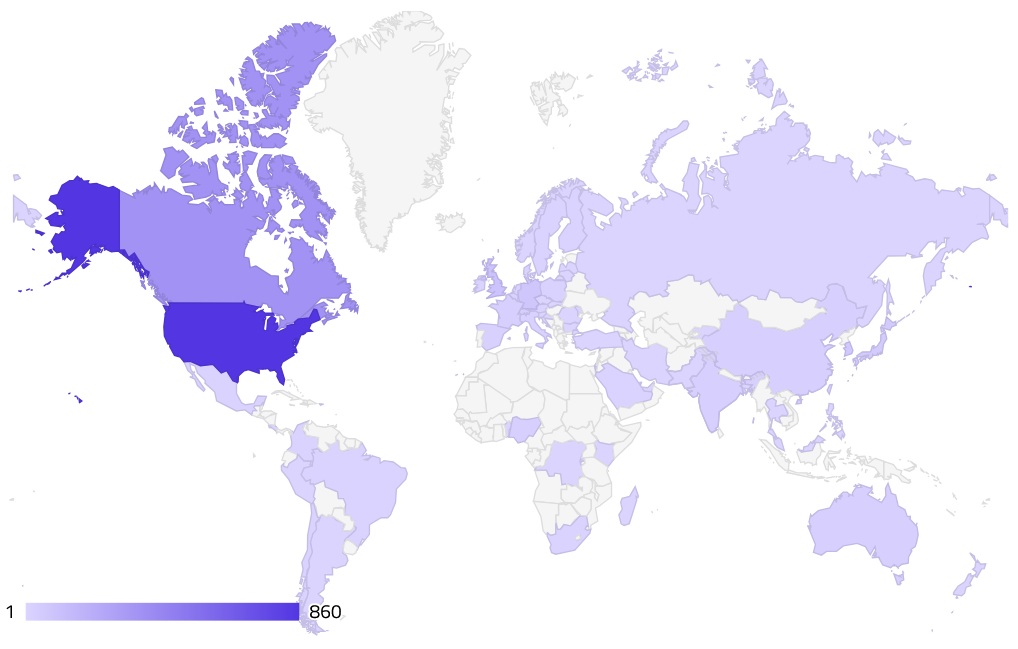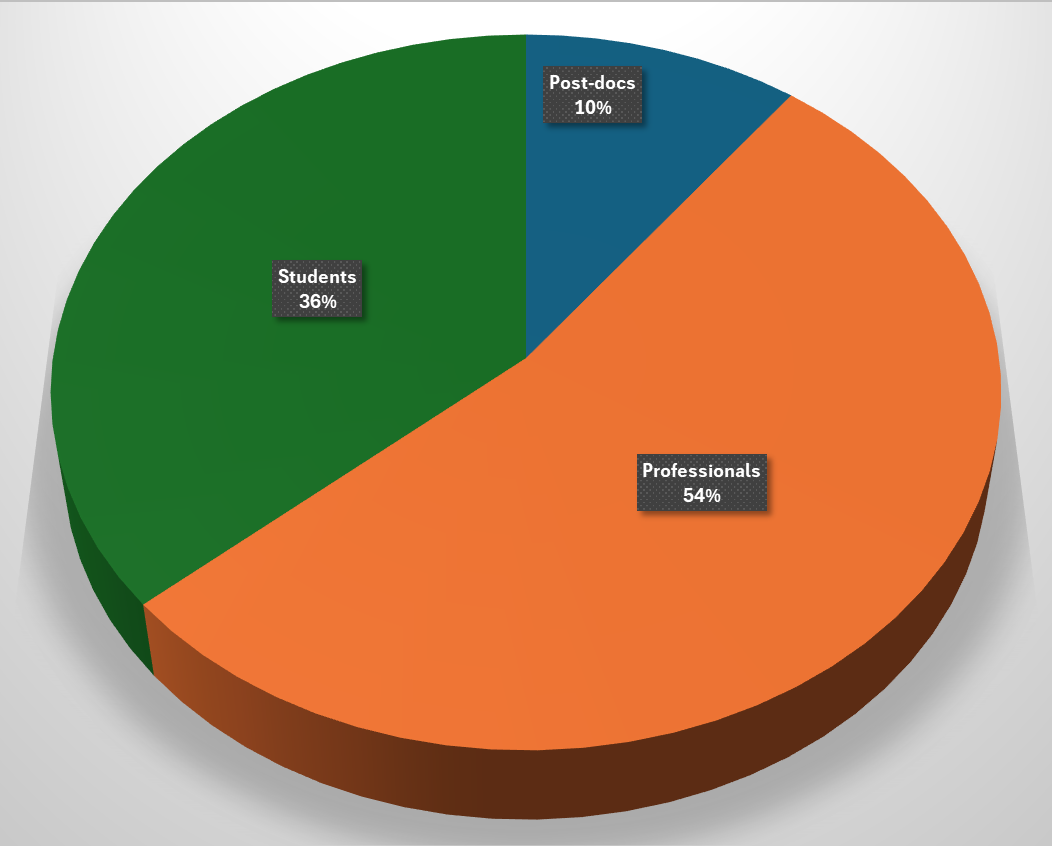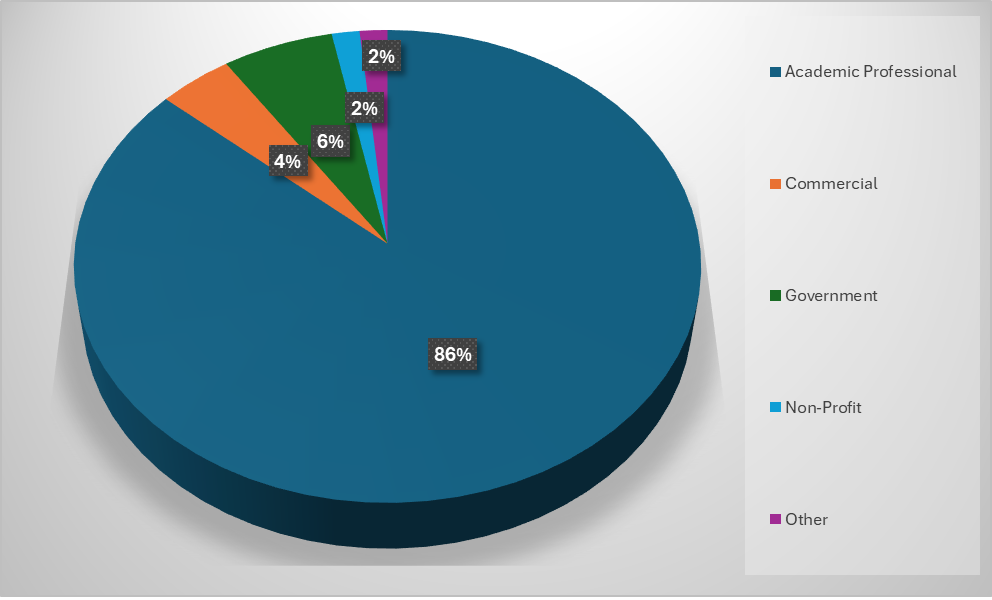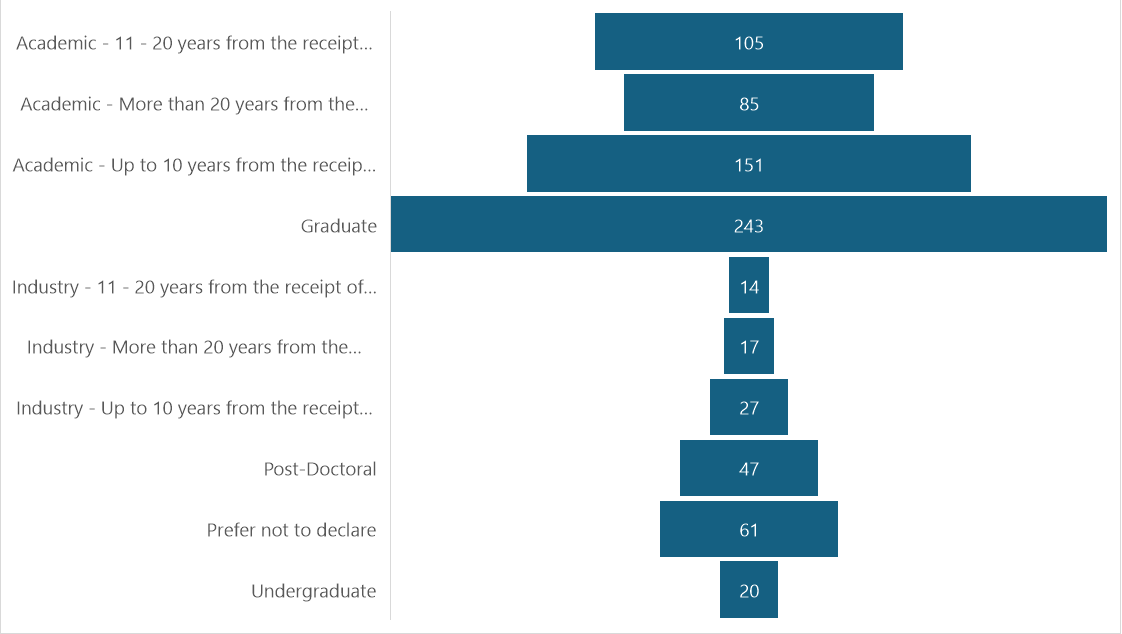Frequently Asked Questions
(last updated May 21, 2025)
Q: Who are the ISMB/ECCB 2025 Conference Chairs?
A: The conference co-chairs are:
João Carlos Setubal
Professor of Bioinformatics and Department Head
Department of Biochemistry, Institute of Chemistry
University of São Paulo, Brazil
Carole Goble
Department of Computer Science
The University of Manchester, UK
Joint Head of Node ELIXIR-UK
Scientific co-Director Federated Analytics HDR-UK
Honorary Chair:
Dame Janet M. Thornton
Senior Scientist
Director emeritus, EBI/EMBL
Additional details are available here.
You can learn more about ISMB/ECCB at https://www.iscb.org/ismbeccb2025/home
TOP
Q: Who do I contact for information on the conference?
A: You can get information on the conference from:
Bel Hanson, CMP, DES
ISCB Director, Operations and Programs
This email address is being protected from spambots. You need JavaScript enabled to view it.
TOP
Q: Where will the conference be held?
A: The conference will be held at the ACC Liverpool, located at:
King's Dock, Port of Liverpool, Kings Dock St
Liverpool L3 4FP
ACC Liverpool is on the Liverpool Waterfront and is easy to reach, no matter how you’re arriving to the city. You can find instructions on reaching the venue here, whether you’re arriving in Liverpool by air, train, bus, car, bike, or foot.
The ACC also has an accessibility guide found here: https://www.accliverpool.com/media/sspbgf0t/acc-liverpool-accessibility-guide.pdf
TOP
Q: What are the conference hotels?
A: Coming soon.
TOP
Q: Can I ship materials or items to the hotel?
A: You should contact the hotel at which you’ve booked your accommodation directly to confirm. In most cases hotels will accept packages but may charge a handling or service fee.
TOP
Q: Is there somewhere I can store my luggage while in Liverpool?
A: If you need to store your luggage before you’re able to check into your hotel, or after the conference and prior to leaving Liverpool, you can ask the front desk staff at your hotel if they are able to store your luggage for you.
You may also want to check Bounce luggage storage as an alternate option for storing your luggage while in Liverpool, depending on your needs and location.
TOP
Q: Will there be a coat check/luggage storage at the ISMB/ECCB registration desk on the last day of the conference?
A: Yes, luggage storage will be available adjacent to the registration area from 8am to 5pm on Thursday, July 24th.
TOP
Q: Are children allowed at the conference?
A: ISCB conferences are professional events. Children of registered ISCB conference attendees are welcome to attend the conference with their parent or guardian, as long as younger children are under the supervision of a parent or guardian at all times. Parents or guardians may bring children to educational events provided the child does not disrupt the event.
TOP
Q: Are guests of attendees allowed to attend ISMB?
A: ISCB allows guests (defined as a non-scientist family member or non-scientist friend) of registered attendees. If you are a registered delegate who would like a non-scientist family member or friend to see your invited talk or poster presentation, please visit the registration desk to obtain a guest badge.
If you would like to bring your guest to a meal function at the conference, you can purchase a ticket for their entry at the registration desk.
Please note: All guest badges must be requested on site at the registration desk and are required for visiting at the conference.
TOP
Q: Is there a policy about alcohol and smoking at ISMB/ECCB?
Alcohol: Beer, wine, non-alcoholic beer, and soft drinks may be offered during the meeting. Alcoholic beverages will be distributed per the laws and regulations of the country where the event is being held and is only allowed in designated areas.
Smoking and use of tobacco: ISCB conferences are tobacco and vaping-free events. Smoking and use of tobacco is permitted only in designated areas outside of the venue. Tobacco products, including electronic cigarettes, are not permitted in the conference or at conference events.
TOP
Q: Where is Liverpool?
A: Liverpool is in northwestern England in the United Kingdom. It is the fifth largest city in the UK and the largest settlement in the county of Merseyside. The city is located on the eastern side of the Mersey Estuary and adjacent to the Irish Sea.
In 2015, Liverpool was granted the status of a UNESCO City of Music—the only city in England with this designation. More recently, Liverpool was deemed England’s most walkable city!
TOP
Q: Do I need a visa to visit England?
A: Depending on where you live, you will need to meet certain entry requirements to visit England.
An overview of whether a visa will be required to travel to England can be found here: https://www.gov.uk/standard-visitor
To check if you need a visa to visit the UK, visit the following link and click the green “start now” button: https://www.gov.uk/check-uk-visa
If you require a visa letter to support your application, please complete our Visa Letter Request Form. We recommend this is completed after you register for the conference and no less than 12 weeks in advance of the conference start date (i.e., no later than Sunday, April 27, 2025). Visa letters will still be processed after this date but may not be approved in time.
IMPORTANT UPDATES:
Electronic Travel Authorizations (ETA) for Travel to the U.K.
Non-Europeans can apply in advance for an ETA, and will need one to travel to the U.K. beginning January 8, 2025. An ETA is not a visa; it is a digital permission to travel.
An ETA costs £16, permits multiple journeys, and lasts for 2 years or until the holder’s passport expires (whichever is sooner). Once granted, ETAs are digitally linked to a traveler’s passport and allow for stays of up to 6 months at a time, including both short trips and more extended stays.
Please review the details found here: https://www.gov.uk/guidance/apply-for-an-electronic-travel-authorisation-eta
If you are unsure whether you need an ETA, you can check the "Who does not need an ETA" section on the page linked above.
TOP
Q: How do I get to Liverpool?
A: There are a number of options for travel to Liverpool. You can find basic information about traveling to Liverpool here. You might also want to have a look at the Merseytravel site to help you plan your travel within or around Liverpool, especially if you’re traveling by bus, train, or car.
By Air
The Liverpool John Lennon Airport (JLA) is one of the UK’s top 10 busiest airports. If you arrive here and wish to get to the city center by taxi, the trip will take about 20 minutes. The express bus service will take about 25 minutes to get you into the heart of Liverpool. The Arriva 500 bus service is the fastest bus service between the airport and the city center, with buses operating every 30 minutes between 4am and 12am every day.
If you don’t come into JLA, you may fly into Manchester Airport (MAN), an approximate 45 minute drive from Liverpool. There are many ways to get from Manchester airport to the Liverpool city center including bus, train, and taxi. For options and estimated costs, click here.
When booking a flight to Liverpool be sure to use the discount codes available here.
By Train
Liverpool Lime Street is the main train station serving the Liverpool city center. ACC Liverpool recommends Avanti West Coast as they operate hourly, direct services from London Euston station to Liverpool Lime Street station. If the Avanti line doesn’t have a train that works for you, you can plan your journey on Trainline instead!
By Bus
There are two main buses that service the Liverpool City Region: Arriva and Stagecoach. The buses connect the city via the Liverpool ONE Bus Station and the Queen Square Bus Station. A few other bus and coach options can be found here.
The Liverpool ONE Bus Station is also the closest service point for long distance coaches from across the UK (National Express services operate from coach stands one and two). Plus, the Liverpool ONE bus station is only a 5 minute walk from the ACC Liverpool conference center!
TOP
Q: Where can I park my vehicle?
A: Read below for car park options.
At Your Hotel/Accommodation
Upon booking your accommodation, ask about parking options, or check the associated website. You can also ask about parking options upon arrival at your hotel.
In the City Center
The Liverpool city council website states that there “is no free parking within the city centre between 8am and 6pm.” Keep this in mind if you’ll be driving to Liverpool or renting a car once you arrive. If you will be parking in the city for only a short time, you can use the pay and display bays in controlled parking zones. There are both inner (in the city center) and outer (outside the city center) controlled parking zones in Liverpool. The maximum permissible time you’re able to park in an inner controlled parking zone is 4 hours. For a more thorough breakdown of zones and parking fares, click here.
At ACC Liverpool
If you’ll be driving to the ACC Liverpool conference center each day, there is available on-site parking at the King’s Dock Car Park. You can park here anywhere from 1 hour to 7 days. Pricing can be reviewed here.
Other Options
Q-Park: There are 6 Q-Park facilities in Liverpool. The closest to the ACC Liverpool is the Q-Park John Lewis, which is an approximate 10-minute walk, or the Q-Park Liverpool ONE, which is a 10 to 12 minute walk. You can pre-book parking through the Q-Park website and can save 10% when pre-booking by entering the code VISLIV10 during the booking stage.
JustPark: You can also find parking options through JustPark. Their website offers a convenient search and pre-book feature for parking. When you search for parking near your destination, you will be shown a map with pricing options. Click the one you want and follow instructions to book! The JustPark site provides information on where to park with a map and pay rates.
You can also search for available parking in Liverpool, with rates, by visiting https://en.parkopedia.co.uk/
TOP
Q: What sightseeing opportunities are available in Liverpool?
A: There’s a lot to do in Liverpool—you just have to decide what you’re looking for!
To help you figure out what to do in the city, the Visit Liverpool site has a list of categories:
- Maritime and history
- The Beatles
- Family-friendly fun
- Parks and beaches
- Museums and galleries
The site also has a list of Liverpool’s top attractions (including their unmissable attractions), which you can find here: https://www.visitliverpool.com/things-to-do/attractions-in-liverpool/top-attractions/
Liverpool is England’s most walkable city, so why not enjoy a walk through the city center and maybe find a few free things to do, like visit the Liverpool Central Library or St. George’s Hall!
TOP
Q: What is the local climate?
A: Liverpool has a temperate maritime climate with fairly mild summers and cool winters. July is the hottest month in Liverpool with a mean temperature of 17°C (63°F). The average low temperature is 14°C (57°F) and the average high temperature is 21°C (70°F). January is the coldest month in Liverpool, averaging 6°C (42°F).
While rainfall is typically spread evenly throughout the year, December has historically been the wettest month with an average 79.7mm (3.14”) of precipitation.
Even though the conference is being held during the summer, remember that the outdoor summer temperatures will be different than the indoor temperature of the conference center. It’s a good idea to bring a light sweater or jacket to wear inside the conference center in case it’s a bit chilly due to air conditioning.
TOP
Q: What is the local time zone?
A: The time zone in July in Liverpool, England is British Summer Time (BST - UTC +1).
For more information on the local time in Liverpool, visit: https://www.timeanddate.com/time/zone/uk/liverpool
TOP
Q: What is the local electrical current?
A: In England, power plugs and outlet sockets are type G. The standard voltage is 230 V at a frequency of 50 Hz. If your country of origin does not use type G plugs/sockets, you will need a power plug adapter to ensure you can power and/or charge your devices.
Additionally, some sources suggest investing in a voltage converter to avoid overheating or otherwise damaging your electronic devices, but this is only needed if your devices/appliances are not dual voltage. Electrical Safety First states the following: “A dual voltage rated appliance will display for example ‘INPUT: 110-240V’ on the body of the appliance or its power supply. This means that you will not need a converter or transformer but just a travel adaptor.”
Read more at these sources:
TOP
Q. What language will the conference sessions and materials be presented in?
A. All conference presentations and materials will be presented in English.
TOP
Q: Who to contact in an emergency?
A: There are a number of emergency phone numbers to call depending on your needs. A list with details can be found here, but the basic numbers are provided below:
Fire, police, and ambulance
Tel: 999 (You can also use 112)
Non-emergency police contact
Tel: 101
Urgent medical problems (National Health Service)
Tel: 111
Coastguard
Tel: 112
Mental health advice and support
Tel: 0800 138 0990
TOP
Q: What is the custom on tipping?
A: Below are some general guidelines on tipping etiquette in the UK.
Restaurants and Pubs
In a restaurant, if a gratuity is not already added to the bill, wait staff should receive a 10–15% tip. If you’re unsure whether a gratuity has already been added to the bill, you can always ask for clarification.
At pubs, it is recommended that you don’t tip unless you get table service.
Hotels
Depending on the hotel you’re staying at, you may be charged a service fee. Nevertheless, you may still want to leave a tip of a few pounds for any employees who’ve helped you or provided excellent service during your stay.
Taxis
The standard tipping procedure for taxis in the UK is to round your fare to the nearest pound. Though if you prefer to leave a bit more, a 10–15% tip is growing more common.
TOP
Q: What is the currency?
A: The local currency in Liverpool is the pound sterling (£). There are 100 pence (p) to one pound.
However, contactless card payments are the norm in the UK. If you’re traveling from out-of-country, your safest bet is to use a credit for payments as needed (e.g., MasterCard, Visa, American Express).
If you do wish to use analog money to pay for expenses while in the UK, note that pence coins come in denominations of 1, 2, 5, 10, 20, and 50 pence, and there are also 1 pound and 2 pound coins. Notes/bills come in 5, 10, 20, and 50-pound denominations, each with its own distinct color.
TOP
Q: How can I pay to register for ISMB/ECCB 2025?
A: Delegates can pay online using a credit card during registration, or they can pay by check or wire.
Credit cards
The following credit cards are accepted for registration: American Express, MasterCard, and Visa. For offline credit card payment please use this form (.pdf).
To pay by check
Make your payment payable (USD) to the International Society for Computational Biology and mail it with a copy of your invoice to:
ISMB/ECCB 2025 Registration
c/o ISCB
525-K East Market Street, RM 330
Leesburg, Virginia 20176
To pay by wire transfer
Delegates wishing to pay using a wire transfer will select “pay by wire” on the Additional Options page and the Payment page during registration. Wire transfer information will be found on the summary page once registration is complete, as well as at the bottom of the PDF invoice. There is a £20.00 fee charged for all wire payments.
Please note that any bank fees must be paid by the participant. Should funds arrive with bank fees deducted, payment of the difference will be charged to the participant at on-site registration.
The last day to pay by wire or check is Friday, June 27, 2025. After this time only credit card payment is accepted.
TOP
Q: Where do I register when I arrive?
A: Conference registration is available from July 20–July 24.
The conference registration desk is located on the the main level on the city side entrance in the Galleria.|
The registration desk will be staffed during the following hours:
Sunday, July 20: 8:00 AM – 10:00 AM; 11:30 AM - 7:30 PM
Monday, July 21: 7:30 AM – 6:30 PM
Tuesday, July 22: 7:30 AM – 6:30 PM
Wednesday, July 23: 7:30 AM – 6:30 PM
Thursday, July 24: 7:30 AM – 12:00 PM
TOP
Q: What should I do if I lose something at the conference venue?
A: If you lose something while attending ISMB/ECCB 2025 at the ACC Liverpool, please first check with event staff at the conference registration desk. If your item(s) is not at the registration desk, you can try the ACC Liverpool Guest Relations desk located in the city side of the Galleria.
TOP
Q: What are the poster sizes?
A: Posters cannot exceed 46 inches x 46 inches. NOTE: Only in-person poster presenters are required to have a physical poster to display in Liverpool.
Virtual posters must be uploaded as both a PDF and an mp4.
Presenter info page: https://www.iscb.org/iscb-policy-statements/presenter-information
TOP







